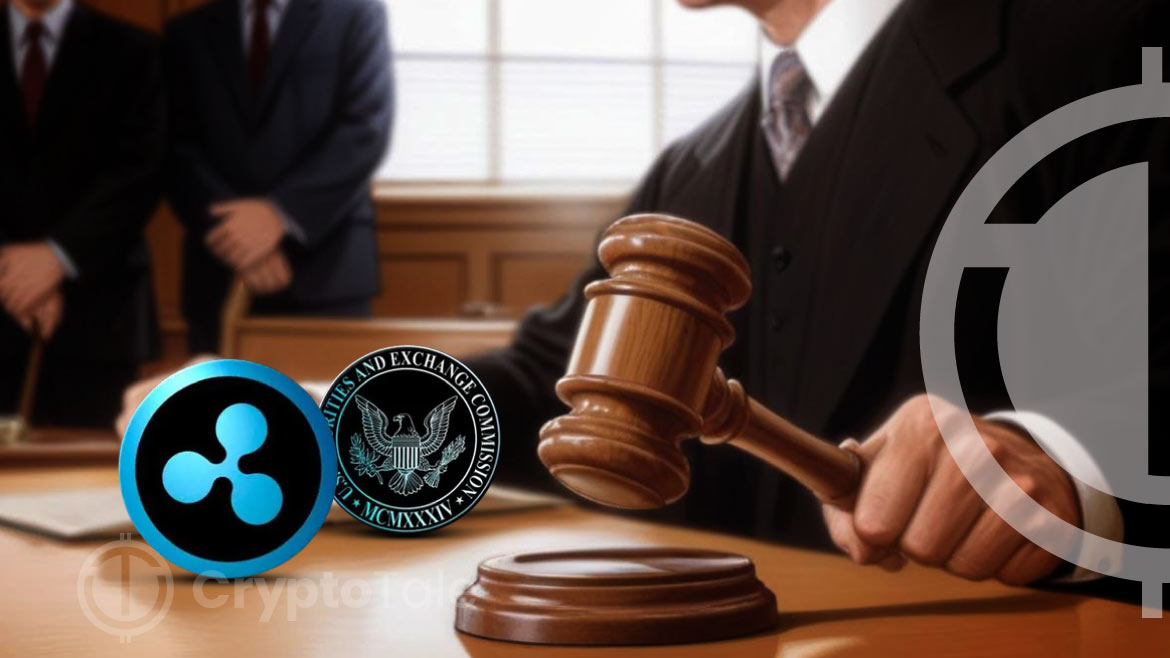- Ripple’s legal chief claims “crypto asset security” has no legal basis or definition.
- SEC’s term “crypto asset security” confused the Federal Court in the Kraken case.
- SEC’s historical stance on art galleries parallels Ripple’s argument against NFT claims.
The Ripple Labs’ chief legal officer has criticized the United States Securities and Exchange Commission (SEC) for its repeated use of “crypto-asset security.” According to Ripple’s Stuart Alderoty, the phrase is a fabricated concept without legal grounding.
Ripple Challenges SEC’s Legal Terminology
In a recent post on X, Alderoty highlighted that “crypto asset security” does not appear in any legal statute. He accused the SEC of attempting to deceive judges using a term without legal basis. Urging the SEC to stop using this term in legal proceedings, Alderoty stated,
The term ‘crypto asset security’ is nowhere to be found in any statute. It’s a fabricated term with no legal basis.
The controversy surrounding the SEC’s use of “crypto-asset security” surfaced again in an August 30 filing. The SEC warned that it might challenge any defunct crypto exchange FTX plan to use stablecoins to repay creditors. The regulator claimed that its portfolio includes “crypto asset securities,” a statement that drew criticism from Ripple’s legal team.
Alderoty’s comments come amid growing concerns over the SEC’s handling of cryptocurrency regulations. In an ongoing legal battle with crypto exchange Kraken, the Federal Court for the Northern District of California expressed similar concerns. The court criticized the SEC’s use of the term, calling the “crypto asset security” concept “unclear at best and confusing at worst.”
Community Accuses SEC of Favoring Bitcoin, Ethereum Over XRPSEC’s Term ‘Crypto Asset Security’ Under Fire
In an August 29 post on X, Alderoty criticized the regulator’s Wells notice to NFT marketplace OpenSea. The SEC had claimed that tokens sold on OpenSea might be unregistered securities, a stance that Alderoty found inconsistent with past rulings.
Referencing a decision over 40 years ago, Alderoty pointed out that the SEC had previously ruled that an art gallery did not need to register with the SEC, even if buyers had investment motives when purchasing art. The case involved the Art Appraisers of America, which sought clarification on whether the sale of lithographs and print drawings by artist William Nelson would violate securities laws. The gallery worried that collectors might purchase the art as an investment, intending to sell it later at a higher value.
In this case, the SEC decided not to take enforcement action, ruling that the sale of art did not require registration, even when promoted as an investment. However, the SEC noted that this decision was specific to the circumstances of that case. The letter from the SEC warned that if different facts or conditions emerged, it might require a different conclusion.
The ongoing disputes between the SEC and various entities in the cryptocurrency space highlight the challenges in regulating this rapidly evolving industry. Ripple’s legal team continues to challenge the SEC’s overreach, particularly in its use of terms that lack a clear legal foundation.












